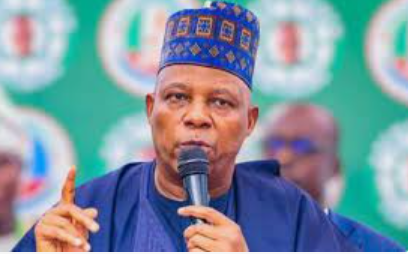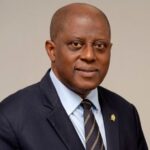
Shettima said when he inaugurated the Council at the Presidential Villa, Abuja, on Wednesday.
“A skilled nation is one that has paved its road to the future,” the Vice President stated.
The VP outlined the administration’s key strategies for a skilled workforce which include harmonising skills development policies, fast-tracking the National Skills Qualification Framework, establishing funding mechanisms and advocating for professional certification.
He said the administration is aware of the realities the nation faces and recognises the monumental tasks ahead for the NCS.
The Senior Special Assistant to the Vice President on Media and Communications, Stanley Nkwocha, disclosed this in a statement Wednesday titled, ‘At the inauguration of reconstituted National Council on Skills: VP Shettima Unveils Plans To Build Skilled National Workforce’
Shettima also highlighted the NCS’s role as a driving force for skills development in Nigeria, saying “Since its inception in 2019, the National Council on Skills has emerged as a pivotal force in providing policy direction for our skills ecosystem”.
He announced the addition of two new members to the council – the Senior Special Assistant to the President on Technical, Vocational and Entrepreneurship Education and the Chairman of the Committee of Sector Skill Councils in Nigeria.
“This underscores our commitment to addressing challenges head-on,” Shettima explained, noting that the Tinubu administration is dedicated to supporting all stakeholders in the skills ecosystem.
Pledging to address the lack of standardisation and regulation currently hindering the sector’s full potential, he said, “Central to this commitment is the recognition of the informal sector’s substantial contribution to our nation’s GDP. Our aim is to cultivate a skilled workforce capable of contributing to both national and international endeavors.”
The Vice President also emphasised the importance of Technical and Vocational Education and Training as the fourth pillar in the administration’s action plan.
He urged the council members to actively engage in discussions and collaborate to develop a comprehensive action plan.
Earlier in his presentation at the 3rd meeting of the Council, the Minister of Education and first Vice Chairman of the body, Prof. Tahir Mamman briefed the meeting on the activities of the Council and important issues of note, especially the proposed establishment of Skills Centres across the country and the planned National Policy on Vocational Skills Development, among others.
On their part, the Minister of Innovation, Science and Technology, Mr Uche Nnaji and the Minister of State for Labour and Employment, Mrs Nkeiruka Onyejeocha, stressed the need for synergizing efforts, ideas and resources in fast-tracking skills training for artisans in the construction and related industry.
In his presentation to the Council, the Executive Secretary of the National Board for Technical Education, Prof. Idris Bugaje, highlighted the significance of the Nigerian Skills Qualification Framework Bill and noted other salient issues such as the harmonisation of skills development efforts in the country and exploring partnership arrangements to fund skills development in Nigeria.
He noted that stakeholders in the sector must begin to see skills development as low-hanging fruits for the government to attain its objectives of creating opportunities for many youths and diversifying the economy through industrialization.
Also, present at the meeting were the Ministers of Budget and Economic Planning, Abubakar Bagudu; Women Affairs, Mrs Uju Kennedy-Ohanenye; representative of Aliko Dangote who is the second Vice Chairman of the Council; the Director General of the Energy Commission of Nigeria, Abdullahi Mustapha; Chairman of the Committee of Sector Skills Council, and representatives of the British Council and Embassy of Morocco.
Other members of the Council present at the meeting included the representatives of the President of the Nigerian Association of Chambers of Commerce, Industry, Mines, and Agriculture; the President of the Council for the Regulation of Engineering in Nigeria; Nigeria Employers’ Consultative Association, and Executive Secretary of the National Universities Commission.





